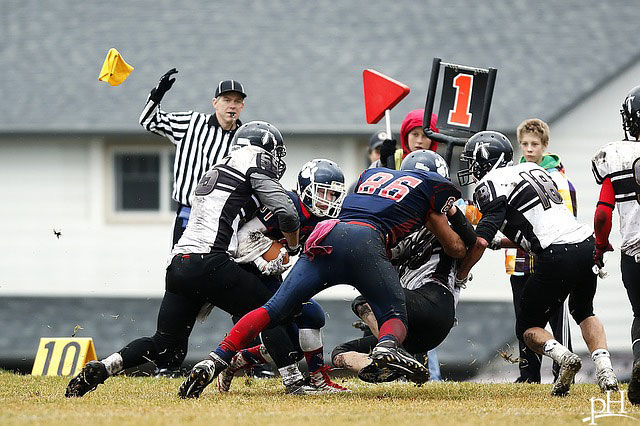Your guide to understanding TBIs (traumatic brain injuries) to get you through the fall sports season
9 years ago | Concussion
By pH health care professionals
School is back in full swing, complete with daily bus rides, homework and afterschool sports! For many student-athletes and their families, it’s a busy season. But don’t let safety discussions get lost amidst the day-to-day hustle and bustle. Sports season is prime season for discussing traumatic brain injury recognition, brain injury recovery, and of course, prevention.
A TBI can affect a student’s attention, memory, emotions, personality, motor skills and senses. So let’s be proactive by learning more about TBI.
So what is TBI?
A TBI is an injury that can change the way your brain normally works and is caused by an external force to the head. TBIs can range from mild (a brief change in mental status or consciousness) to severe (an extended period of unconsciousness or amnesia), the Centers for Disease Control and Prevention says. Most TBIs (nearly 75 percent) are considered mild, meaning they will usually resolve within days or weeks. But all TBIs should be carefully monitored and taken seriously, even if they are mild.
With sports, you often hear about concussions. A concussion is considered a mild type of traumatic brain injury. During sports, a concussion can occur due to a jolt or blow to the head. Concussion symptoms may include dizziness, slurred speech, confusion and amnesia. The athlete may or may not lose consciousness when sustaining a concussion.
A concussion alters the way the brain functions, causing headaches and difficulties with concentration, memory, balance and coordination. The effects are usually temporary, but need to be taken seriously. A concussion is an injury to the brain, and as such requires time and rest to heal. Most people are able to make a full recovery and get back to their regular lives. However, there may be some lasting effects. Some research shows the effects of a concussion on cognitive ability can be measured 30 years later.
How can you recognize a TBI?
Coaches and parents at sporting events should look for the following traumatic brain injury symptoms: the athlete appears dazed or stunned, forgets instruction, moves clumsily, answers questions slowly, shows personality changes, and/or cannot recall events before or after the hit or fall.
The student-athlete with a TBI may experience a headache, nausea or vomiting, balance problems or dizziness, double or blurry vision, sensitivity to light or noise, sluggishness, difficulties with memory or concentration confusion, mood changes and changes in sleep.
Any signs of brain injury should be taken seriously and addressed immediately (not after the game is over or only if symptoms get worse).
How do you know whether it’s a mild, moderate or severe brain injury?
A doctor may diagnose the severity of the TBI (mild, moderate or severe) by assessing the length of unconsciousness and amnesia, as well as the brain imaging results, and by running a few tests to evaluate the athlete’s neurological abilities.
Symptoms of mild TBI include headache, confusion, blurred vision and behavioral changes, the U.S. Food and Drug Administration says. Moderate and severe TBI can include those symptoms plus repeated vomiting or nausea, slurred speech, weakness in the arms or legs, and problems with thinking abilities.
What is TBI recovery like?
“People with their first, mild TBI may just need to rest and reduce vigorous activity for a short period of time, while those with moderate to severe TBI may require physical, occupational, or psychiatric therapy and other support,” the FDA says.
Also, make sure you are eating plenty of brain-loving nutrients like magnesium, omega-3s and B vitamins.
How can TBIs in sports be prevented?
Parents, coaches and teachers can encourage student-athletes to tell their coaches right away if they, or someone on their team, may possibly have a concussion. Enforcing the rules of the game and good sportsmanship foster a safer environment for everyone. Coaching staff should be trained on recognizing concussions and following proper protocol before allowing a student to return to play.
Enjoy Your Healthy Life!
The pH professional health care team includes recognized experts from a variety of health care and related disciplines, including physicians, health care attorneys, nutritionists, nurses and certified fitness instructors. To learn more about the pH Health Care Team, click here.



